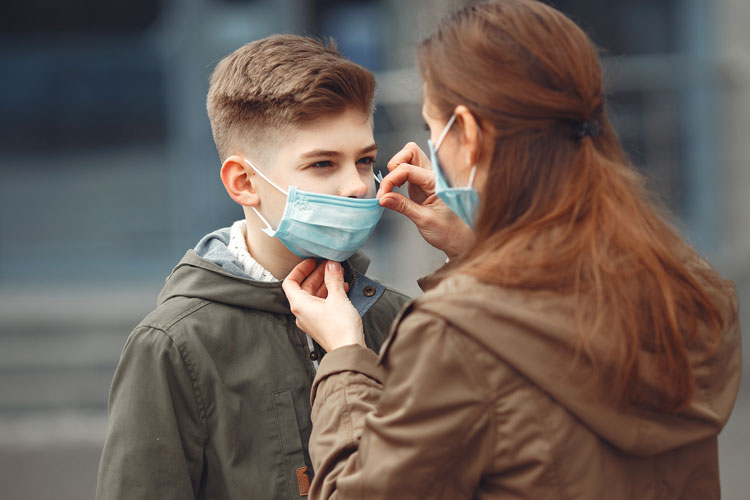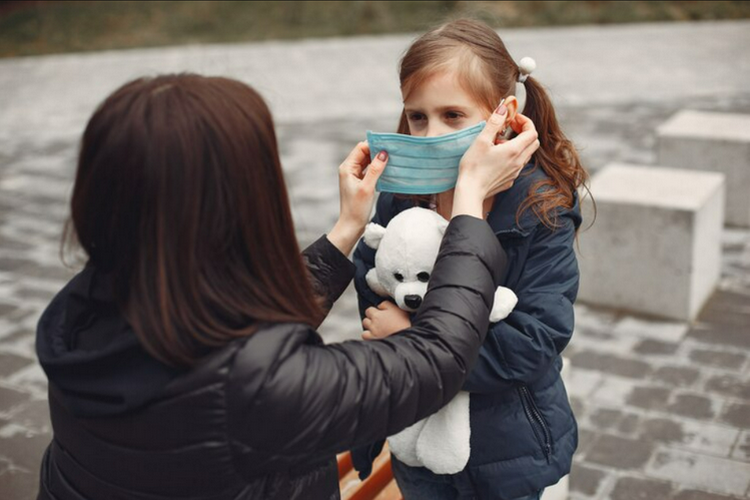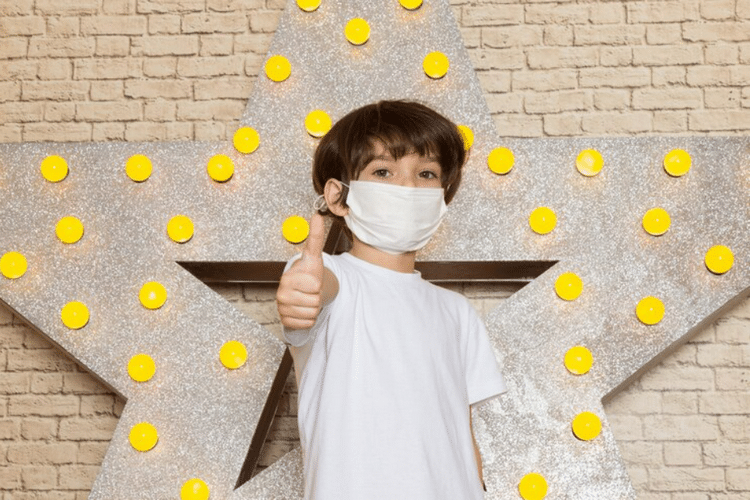


A kid with autism is generally unlikely to wear face masks as suggested by some for protection against the COVID-19 pandemic. Wearing a face mask presents challenges for anyone of any age who has autism. As communities reopen, it is fact that some places will require a face mask to enter.
Face masks present a two-sided issue. One side of the issue is the discomfort on the part of the person with ASD, mostly due to sensory preferences. The other side of the issue is the person with ASD seeing others in face masks. Either way, the situation is wrought with challenges. Wearing face masks and seeing others in masks tends to be a frightening experience, especially for those with special needs.

Let’s address the possible sensory issues first. Masks are restrictive, tight, potentially itchy, and can make the wearer feel like they can’t breathe. Also, depending on the ear loops, there can be uncomfortable sensations on the head and not just the face. Fabric can be too rough or too soft.
The masks may be too tight or too loose, or – loose on the face and tight around the ears. For children who have wet lips or who drool, masks will become damp. When children with autism rely on chewies and other oral sensory aides, wearing a mask will prohibit them from accessing this self-soothing strategy.
There are emotional issues about a kid with autism and wearing face masks as well. Many children with ASD don’t like Halloween costumes that disguise or change the appearance of faces: their own and others. Covered faces are often associated with trips to the hospital or the dentist.
Sometimes clowns (scary for many children) have something which alters the face, and masks can be a reminder of that. Between the sensory issues and the emotional connections associated with masks, one can understand why it’s a challenge for children and teens with autism to wear a mask.
So what can be done to help children or teens with autism wear a mask in situations where we still have the Covid-19 pandemic? First, approach the situation with extreme patience. This is something where it’s going to take time, and you will need to prep and practice at home before you are in a situation that requires masking up.
If you and your child or teen are going to a place where masks are required, or, you want your child to wear one regardless if they’re required, there are a few steps you can take to help your child adjust to a mask. First, focus on your own mask. The child sees you (or other family members) more than they see themselves, so start with that.
Make your mask visually appealing to the child somehow. The attitude you take about your own mask will be apparent to your child, so if you complain about it, they may too. This helps address one aspect of face masks we mentioned above: seeing others in masks.

To get them accustomed to a mask in these times of the Covid-19 pandemic, you may need to start at a very basic step of looking at the mask. Then move on to touching the mask…holding the mask…and then putting the mask to the face. Each step can be done to the point of toleration. If there is an objection or a strong reaction, back off but persist in the steps when it feels right.
Social Stories are typically very beneficial for helping a kid or teen with autism to adjust to something new. Perhaps having the child select the fabric for his mask would be a good step to take. Or, if you have a plain one, maybe the child can decorate it in some (non-health threatening) way (markers often have strong scents…ink around the face can be irritating…). If it comes to this, do as behavior therapists do: connect a small reward to each successful step in acclimating the child to the mask.
Building tolerance of the mask is the basic goal. Remember that you don’t want to introduce a mask to a hesitant child or teen on the spot. If the mask is required to grocery shop, don’t put the mask on the child for the first time as you enter the store.
Chances are, this isn’t going to work. Put masks in plain sight at home. Practice wearing one several times a day, using a timer so the child knows when it can come off. Provide praise as needed to support the child or teen in wearing one for the particular situation.
One thoughtful approach to face masks is the mask with a see-through panel (vinyl window) that exposes the mouth. These are being made and sold for people who read lips to understand language. Perhaps these would be helpful for some children and teens with autism.

As we continue to endure the changes that the Covid-19 pandemic has brought into our lives, wearing masks has become a common practice. For children and teens with autism, wearing masks is not a preferred task. It’s possible that despite steady intentions and practices, children and teens with ASD won’t wear a mask at all.
It may be better to respect that than to force face masks upon them. Remember that homemade masks do not replace the N95 or medical-grade masks and that disposable masks should only be worn once and then tossed. Reusable masks should be washed and dried appropriately after each wearing, and masks should not be shared with others.
Read other SPECIAL NEEDS BLOG POSTS HERE
Read Keri Horon’s personal blog HERE
Just enter your email address below and you’ll get an email every time we publish a new post!
Categories :
Keri is a special needs parent and a veteran high school English and journalism teacher turned writer. She enjoys reading, hiking, gardening, cooking, traveling, wine tasting, and practicing yoga. Both she and her son love to create art. She has a passion for educating people on all things autism. Visit her blog at https://kerimehome.com.
View All PostsNotifications